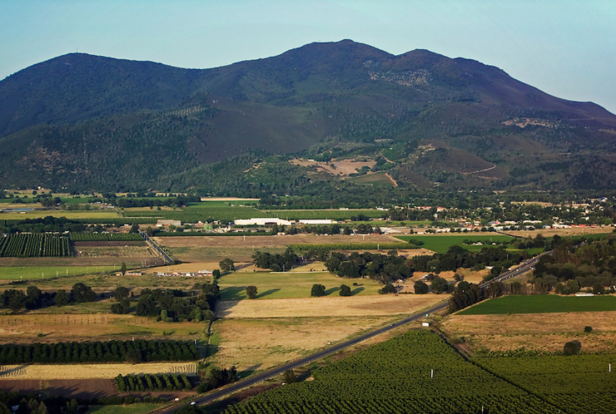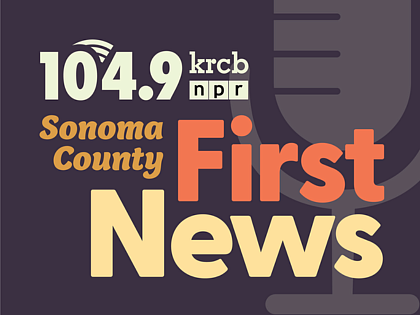 photo credit: Courtesy of Aerial Archives.com
photo credit: Courtesy of Aerial Archives.comA photo of Highway 29 and Kelseyville with Mt. Konocti in the background.
A divided Lake County Board of Supervisors voted this week to recommend changing the name of the community of Kelseyville. That’s due to its connection to a 19th century settler who murdered, raped and enslaved Native people.
The 3-2 decision bucks a referendum held last month where a majority of county voters favored keeping the community’s name as-is.
Kelseyville was named for Andrew Kelsey, a 19th century settler from Kentucky who with his brothers operated a ranch that enslaved indigenous people into working the cattle operation. He was killed in 1849 in an uprising by Natives resentful of his ill-treatment of the Wappo and Pomo people in the area.
The following year a bloody reprisal on Clear Lake by the U.S. calvary killed hundreds of people, mostly women, old men and children in a dark chapter known as the Bloody Island Massacre.
A citizen-led movement has in recent years pushed to change the town’s name to Konocti, after the 4,300-foot volcano that towers over the town.
But an advisory referendum on the November ballot found that more than 70% of voters were in favor of keeping the name Kelseyville. Native leaders say the lopsided result validates the racism in the community.
“I wanted it on record where this county stood with its native population,” said Moke Simon. “It's on record now. No running away from it.”
Simon is an elected member of Lake County’s board of supervisors and tribal chairman of the Middletown Rancheria of Pomo Indians of California.
He said the conversations sparked by this controversy has created a point of no return for the county reckoning with its past and present.
“This isn't going away,” Simon said. “Whether you think you win or you lose, one side or the other…here the education has started. People have stood in this room and said, I did not know what this vote meant or who we are voting for. The education has started in the town of Kelseyville…the name will change before they put me back in the earth. I'll guarantee that.”
Opposition to the name change came from many in the business community.
Mark Borghesani’s family has owned Kelseyville Lumber since the 1950s. He calls the rebranding effort hasty.
“There was no discussion of what the name Konocti would be,” Borghesani said. “There was no discussion of the impacts to businesses. There's no discussion of the harm that's being done to this town, to our community.”
Proponents of a name change had organized as a loose umbrella group called Citizens For Healing. They had objected to the question going to voters in the first place.
“It's a moral issue, not a majority issue,” said Alan Fletcher, a resident of Lucerne and organizer with the group.
“What helped us tremendously was that even though some of the tribes have been grumbling that we didn't consult them in the proper way, we did the best we could at the time, and we ended up with all seven tribes supporting the change,” Fletcher said.
But it’s not a done deal. Two of the five members on the county board will be leaving at the end of the year. And a re-vote could happen before the California Advisory Committee on Geographic Names meets in February.
Voting this week, Supervisors E.J. Crandell and Michael Green backed Simon's motion to recommend the change. Opposition came from Board Chair Bruno Sabatier and Jessica Pyska, whose district includes the unincorporated community of Kelseyville.
Still, the final decision to change the name to Konocti – or something else entirely – rests with the U.S. Board of Geographic Names. For decades the federal agency has worked to erase place names considered derogatory and offensive.

 Live Radio
Live Radio




